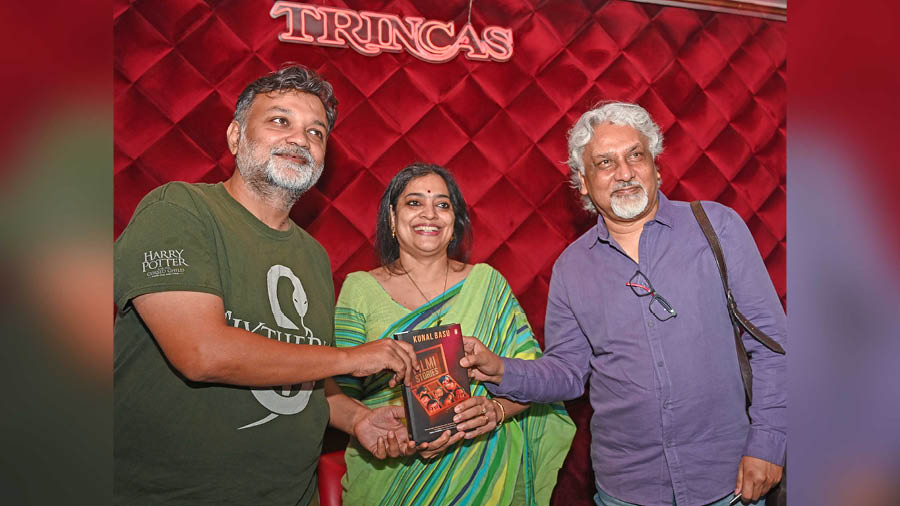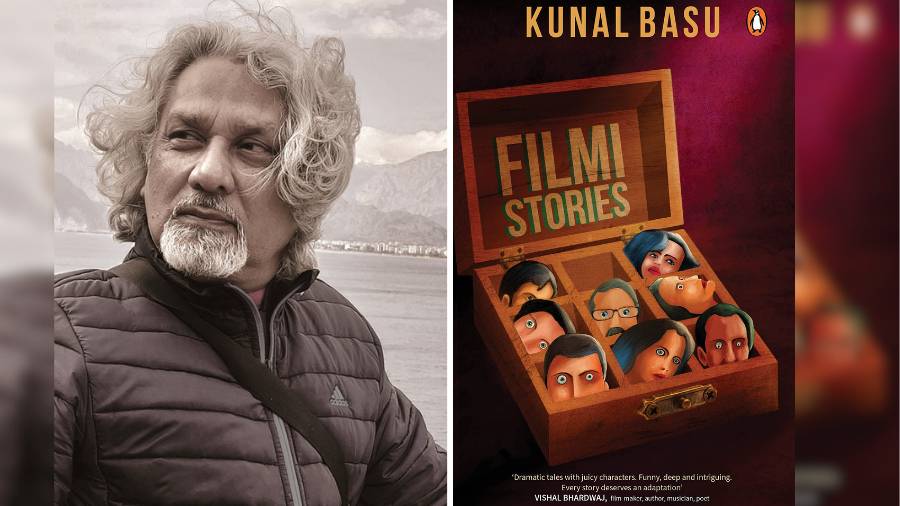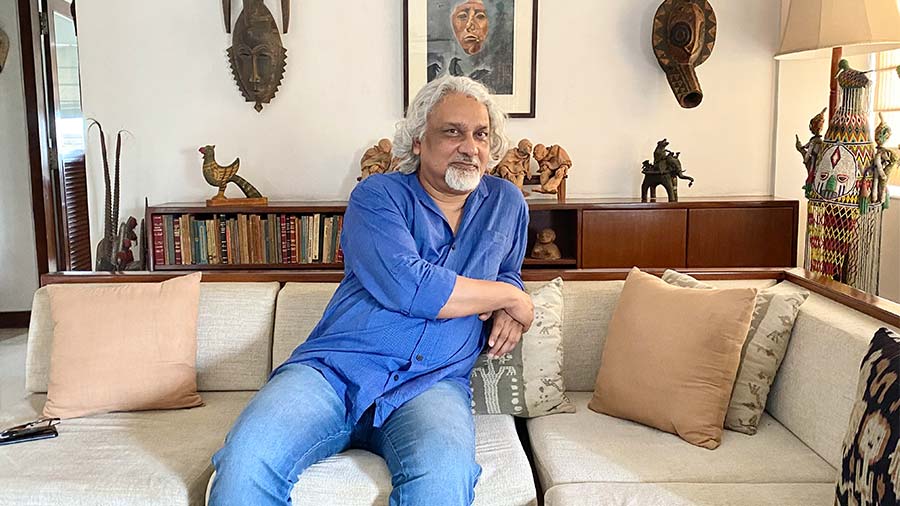There are few things that can possess Kolkatans to forsake a relaxed start to a Sunday morning and step out of their homes – and among them, as Malavika Banerjee, director, Tata Steel Kolkata Literary Meet, said, are the “power of books, Kunal Basu and Srijit Mukherji, and the unending magic of Trincas.”
Indeed, the legendary Park Street eatery, helmed by Anand Puri, and described by Mukherji as “a portkey into the past,” was filled to the corners on a sunny Sunday morning with book lovers from all walks of life. They enjoyed Trincas’s signature breakfast spread while waiting in anticipation of the launch of Kunal Basu’s latest book, a collection of stories titled Filmi Stories. In conversation with the author was Banerjee and the filmmaker, Srijit Mukherji – and the organic, free-flowing adda at the book launch, which was presented by Tata Steel Kolkata Literary Meet and Penguin Random House, kept the enthusiastic audience deeply engaged.
‘Can I write audiovisual fiction?’
Why is the anthology of eight tales called Filmi Stories? The author had an interesting answer to this. “A few years ago, at a literary festival in Australia, a fellow panellist – he was a well-known American writer of OTT content – said that people will soon stop reading novels,” said Basu. “This, he said, was because everything a novel offers – characters, plotlines, a beginning, middle and end – can be replicated and provided to an audience in the form of television: 10 episodes, multiple seasons and so on. In this manner, what would have been difficult to adapt to film – it is hard to reproduce a complex novel within a two-hour movie – can easily be provided to viewers in the form of an OTT experience. People would prefer to watch the novel rather than read it.”
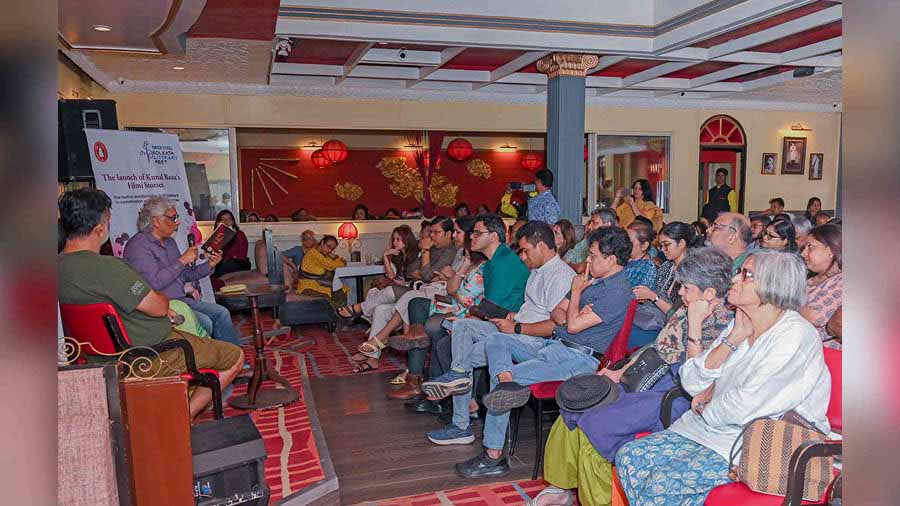
The audience at Trincas
This, naturally, did not go down very well with Basu, who is known for his novels! So he began to think differently. “We have dance dramas, opera, performance art, all of which marry different artistic forms together. So could I, as a fiction writer, write in such a way that my readers, while reading my work, are able to watch a film through their mind’s eye? Can I write audiovisual fiction?”
“A lot of contemporary English fiction writers are writing in the hope of their works being adapted cinematically,” opined Mukherji. “But what Kunal da does is so disarmingly honest; he is devoid of the snooty attitude that screams ‘we are the proponents of literature, and the writing of scripts is beneath us’; as he put it so beautifully, his stories embody an audiovisual mode of writing.”
It is all part of the process
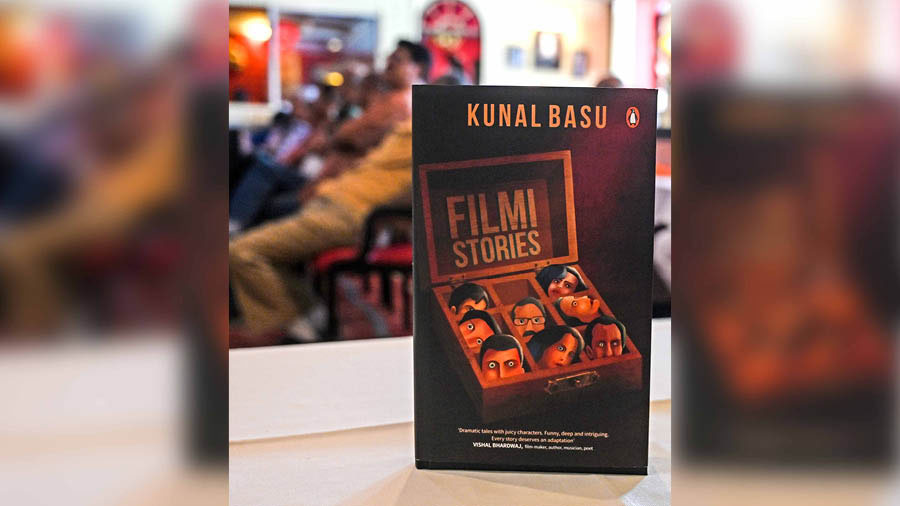
The cover of 'Filmi Stories'
An interesting part of the conversation explored how Basu and Mukherji, both of whom reside in south Kolkata, are able to delve into the minds of the characters they depict in their books and films, many of whom belong to marginalised communities. For instance, the protagonist of the first story in Filmi Stories, Jaggi, is a truck driver. “This is my method; if I find a potential story interesting, I immerse myself in the worlds of the people I write about,” said Basu. “To understand and capture the story of Jaggi, I did several things to immerse myself in that world.” So the author started going to Dankuni, hanging out with the bus drivers, eating with them at dhabas, using their communal toilets – “that was a frightening experience, and taught me so much about the privileges we take for granted” – and even convinced a friend, a trucking company owner, to let him take rides. “I did all this for a 12,000-word story, and the world of Jaggi and his helper, Raju, became real to me.”
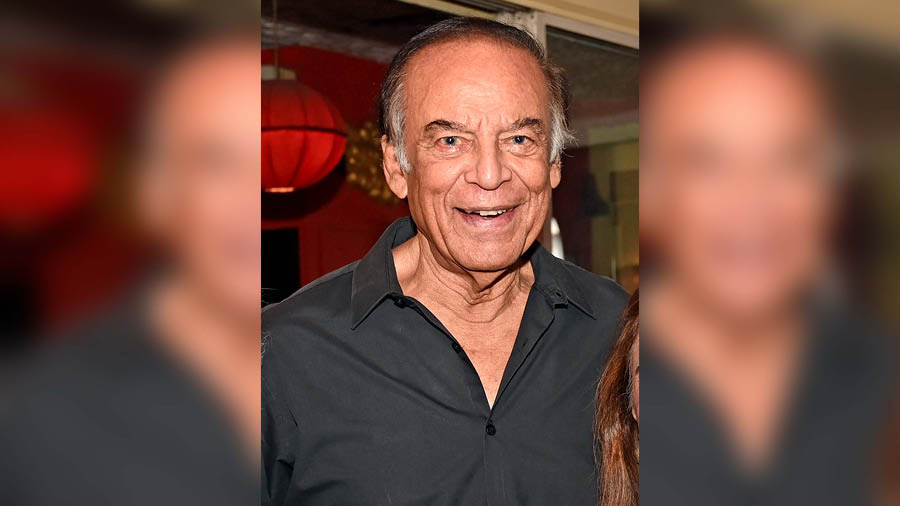
Veteran actor Barun Chanda at the event
Mukherji recalled his trip to Lalbazar before making Baishe Srabon. “A certain Damayanti Sen was there at the time,” said the filmmaker. “She took me through so many cases and the nitty-gritties of police procedure. For Zulfiqar, I had to spend a lot of time at the thanas surrounding the docks, to understand the history and nature of crime there. This is, as Kunal da correctly points out, part of a process.”
The discussion took on a lighthearted tone as the speakers talked about their experiences in jail and with the police in their quest to learn more about their subject matter. While Mukherji had some hilarious anecdotes about the “motherly” conduct of the Kolkata Police in terms of law enforcement, Basu talked about how parts of his research found their way into his story, Jailbirds. “Firstly, one can only do these things in Kolkata,” he quipped. “And I have never had the privilege of being arrested, which is such a negative strike against me! I needed to spend time inside a jail, so I managed to get the green signal to stay inside Presidency jail for a while. Soon, the inmates caught on why I was there; a lifer pulled me aside one day and told me, “Dada, apni novel likhben bole ekhane eshechhen toh? Dekhben apnar boi pore lokey jyano ghumiye na pore!”
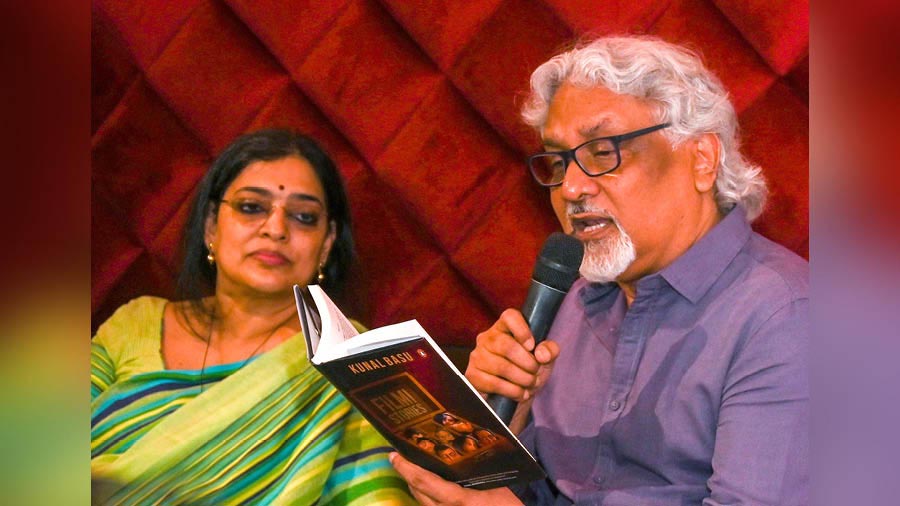
Kunal Basu reads out an excerpt from’ Filmi Stories’
“The real eye-opener was visiting the women’s ward,” he continued. “It was a wholly different kind of experience. That’s when the thought struck me about a classic romance between two prisoners; one from the men’s ward, the other from the women’s, with the twist being that the warden plays Cupid, and eventually helps the two convicts engage in jailbreak. That’s how the story of Jailbirds came about.”
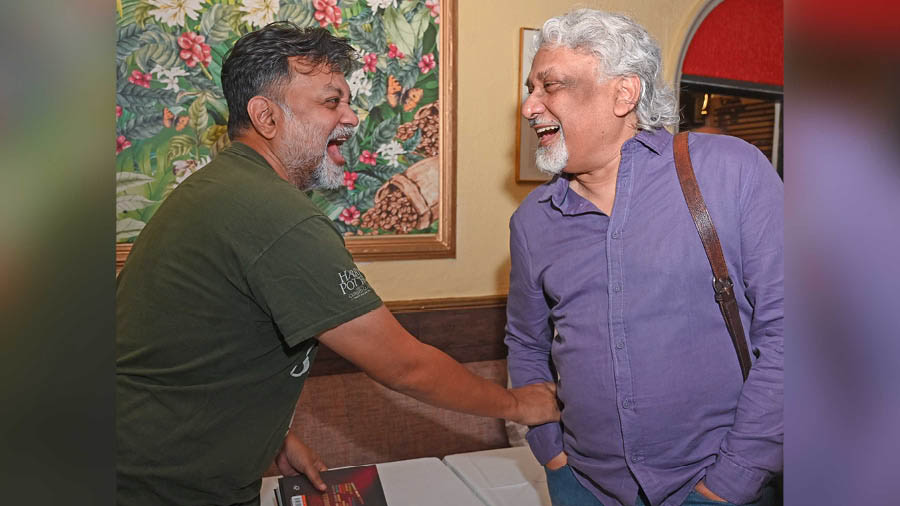
Srijit Mukherji and Kunal Basu share a light-hearted moment
‘Kunal da always has one story pending’
The session also involved the author reading an engrossing excerpt from the story, Fake, in the anthology. When the conversation opened itself up to the audience’s questions, and an attendee inquired about the book’s cover art, everyone got a glimpse into the warm relationship shared by the author and the artist, Pinaki De, who created the artwork for the Filmi Stories cover. “Kunal da and I go back a long way,” said De. “Whenever we talk, we talk about art; the cover art of Filmi Stories is a sort of tribute to Polish posters; in the box that you see, where almost all sections contain a head, we kept one section empty, to imply the fact that Kunal da always has one story pending, for which we will all come back!”
